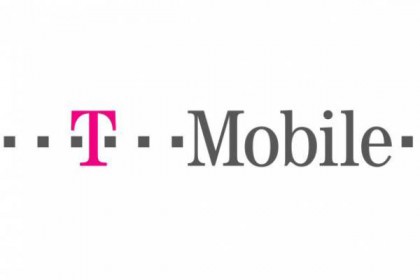Top Class Actions’s website and social media posts use affiliate links. If you make a purchase using such links, we may receive a commission, but it will not result in any additional charges to you. Please review our Affiliate Link Disclosure for more information.

The proposed T-Mobile robocall settlement will be distributed among 106,157 Class Members, who will receive up to $90 each if they submit a claim. This amount may be reduced pro rata if more claims are filed than are available in the class action settlement fund.
Class Members of the T-Mobile class action settlement include any non-T-Mobile customer who received a cellphone call from T-Mobile using an automated system between Sept. 4, 2008 and Sept. 4, 2012, and who had not given the company prior express consent to contact them.
A preliminary approval hearing is set for April 4, 2014.
T-Mobile is accused in the class action lawsuit of violating the Telephone Consumer Protection Act by using a “robo-dialer” to make mass-marketing calls without consent from the people they called. A robo-dialer, also called an autodialer or robocaller, is a type of telephone technology designed to call large numbers of people and play pre-recorded phone calls. The technology is well-suited to making large-scale telemarketing at a very low cost to the company making the calls. However, autodialers are illegal in most circumstances. T-Mobile continues to deny wrongdoing.
The Telephone Consumer Privacy Act of 1991, or TCPA, is a law that regulates telemarketing. The law was first passed as telephone technologies were rapidly changing, and it was becoming easier for large companies to make intrusive marketing calls to the public at little cost to themselves. Later court rulings and updates to the law have made it clear that it also applies to newer technologies. For example, court rulings have held that text messages are considered “phone calls” for the purposes of the act. The robo-dialer was one of the new technologies that inspired the act.
The TCPA is partially designed to be enforced through civil lawsuits. This provides consumers with legal recourse, the grounds to file lawsuits against offenders. That serves as both a mechanism to discourage infringement of the TCPA and a means to punish offenders. Many TCPA cases are class action lawsuits.
A class action lawsuit is a type of group lawsuit in which multiple parties allege that they have suffered similar harm at the hands of a single defendant. Since TCPA lawsuits often involve large numbers of people who receive robocalls, class action lawsuits are well-suited to alleged infractions against this law. Class action lawsuits are designed to save money for everyone involved. Defendants only have to defend against a single lawsuit, plaintiffs can pool their resources, and the court system only has to expend the resources for a single case.
More information about how to file a claim for the T-Mobile robocall class action settlement was not immediately available. Keep checking TopClassActions.com or sign up for our free newsletter for the latest updates. You can also mark this article as a “Favorite” using your free Top Class Actions account to receive notifications when this article is updated.
The T-Mobile Robocall Class Action Lawsuit is Sayan Aboudi, on Behalf of Himself and All Others Similarly Situated vs. T-Mobile USA, Case No. 3:12-cv-02169-BTM-NLS, filed in the United States District Court for the District of California.
UPDATE: The settlement website is www.aboudisettlement.com. The deadline to file a claim is August 26, 2015.
If you received an unsolicited cell phone call from T-Mobile or another company, you may be entitled to compensation. See if you qualify at the Text Message Spam, Unwanted Cell Phone Calls TCPA Class Action Lawsuit Settlement Investigation.
ATTORNEY ADVERTISING
Top Class Actions is a Proud Member of the American Bar Association
LEGAL INFORMATION IS NOT LEGAL ADVICE
Top Class Actions Legal Statement
©2008 – 2024 Top Class Actions® LLC
Various Trademarks held by their respective owners
This website is not intended for viewing or usage by European Union citizens.















36 thoughts on$5M T-Mobile Class Action Settlement Reached Over Robocalls
please add me as well.
Add me please
T-mobile trying to rip me off and sell down the river!!!
T-mobile would not turn off my phone per my request then charged me 9 times my bill!!!
yes sign me up
YES, ADD!
I need information on the lawsuit please give me a number to call
I would like to be added to this…I was on my mother’s plan for 2 yrs. then I put it in my name which had been with t-mobile for 8 yrs….The prices kept going up every month…I ended up cancelling my plan and reverting to a trac-phone with limited minutes and texting
Is it to late to file
I have Been a Customer for 14 years. Lately my service has been horrible. I need to be apart of the Class Action lawsuit. Sign me up!